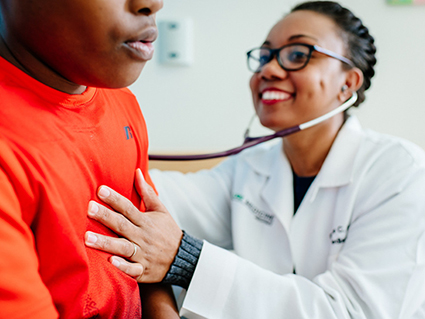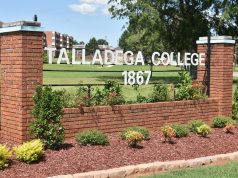
By Julie Cole Miller
UAB News
The Department of Family and Community Medicine at the University of Alabama at Birmingham has been awarded a $7 million grant to address the need for training additional family medicine physicians to serve in rural and underserved areas of the state in the years to come. The grant, from the Health Resources and Services Administration, part of the United States Department of Health and Human Services, will enable the department to develop novel high school and college pipeline programs, medical student programming, and faculty development programs to enhance curriculum and mentoring efforts.
“Currently, our state needs more than 600 additional primary care providers to meet the needs of the patients and the kinds of health conditions that we will be seeing by 2030,” said Irfan Asif, M.D., chair of the Department of Family and Community Medicine. “To address this deficit, we must be aggressive in the family medicine and primary care programming that we develop and implement. This grant will go a long way toward helping us achieve that goal.”
HRSA, the primary federal agency for improving health care for people who are geographically isolated or economically or medically vulnerable, has awarded the grant for a four-year term, with an annual budget of $1,750,000.
Asif has begun laying the groundwork for the department’s enriched training program — the Comprehensive Urban Underserved and Rural Experience (CU2RE) — which will address six core areas related to interprofessional education, behavioral health, social determinants of health, cultural and linguistic competency, practice transformation, and telehealth. This year, the department will be implementing a pilot program that will draw students into a medical student urban underserved pathway to complement existing rural programming. Over the next year, both urban and rural underserved programming will expand significantly within the UAB School of Medicine.
Dr. Irfan Asif, chair of Family Medicine, says Alabama will need to add hundreds of additional primary care physicians in the next 10 years to meet demand.“The CU2RE program will help identify, train and retain students interested in family medicine and primary care, particularly those from urban and rural underserved backgrounds,” Asif said. “We will tap into our regional campuses across the state to help broaden our reach, as well as partner with programs such as the Alabama Area Health Education Center, Minority Health and Health Disparities Research Center, Office for Diversity and Inclusion, and others to identify high school and college students with a passion for service.”
Asif says the grant will help offset the challenges that the region has long grappled with, particularly in its most vulnerable populations.
“With an insufficient physician workforce, Alabama struggles to adequately prevent disease; this contributes to our state ranking in the bottom five in the country for many chronic illnesses,” he said. “This HRSA grant is meant to help address the state of Alabama’s primary care workforce shortage and sets the stage for making a considerable impact on the health and well-being of the patients we serve.”
The study is supported by grant T99HP39201-01-00 for Value-Based Medical Student Education Training Program.




